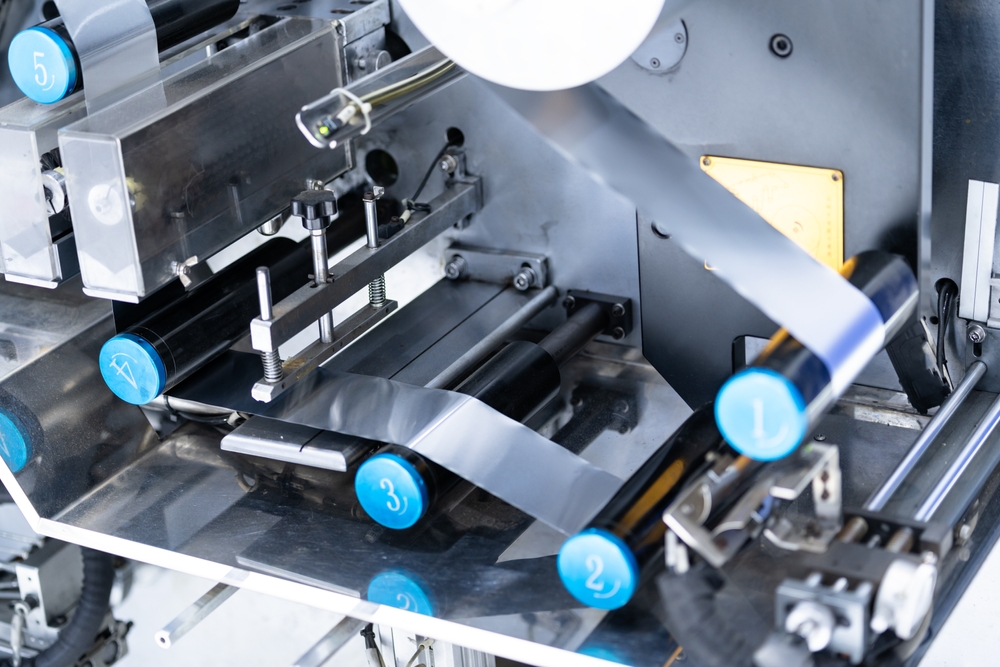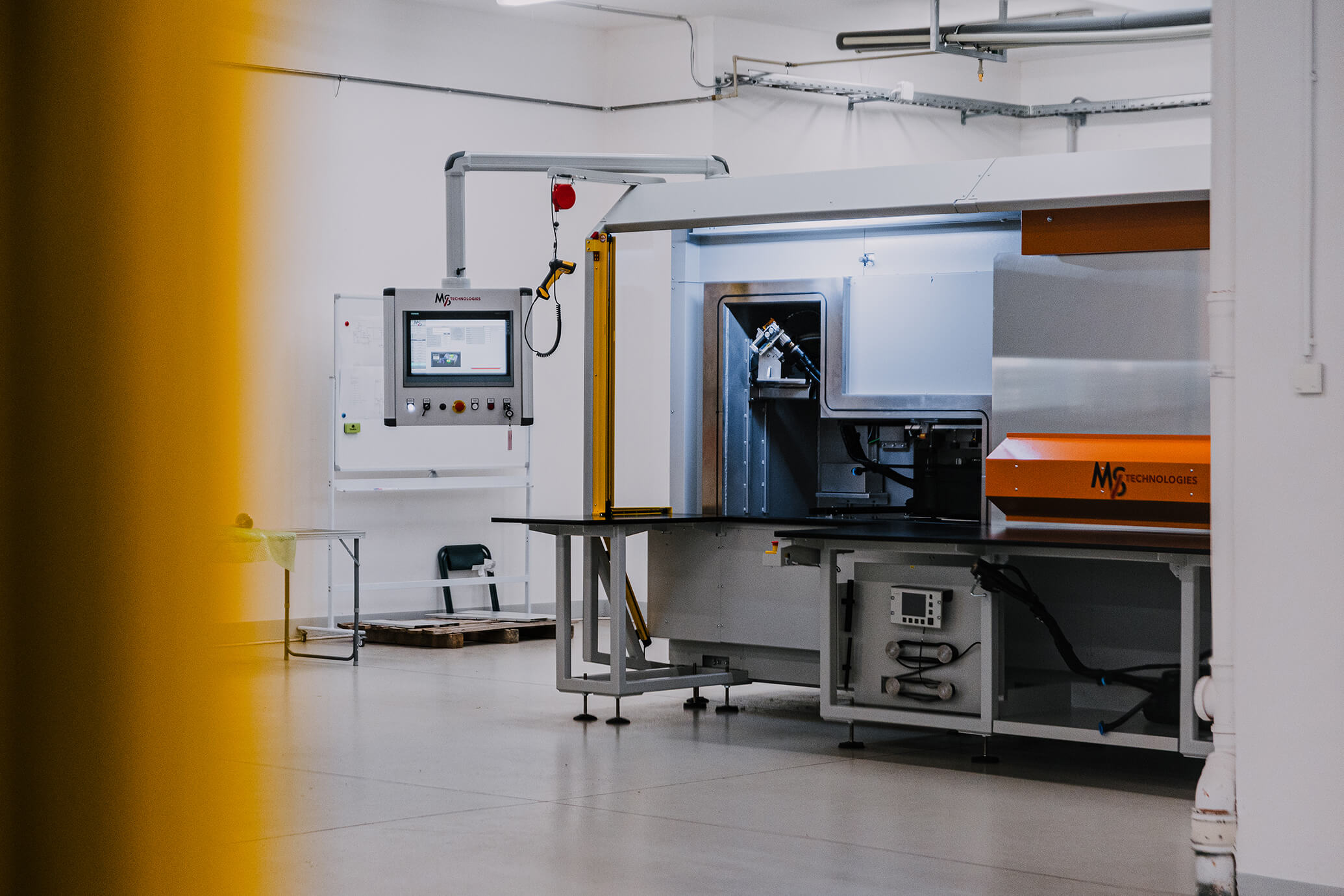Freeze-drying, also known as lyophilisation, is one of the most advanced preservation methods used in modern industry. This process removes moisture from delicate products while preserving their structure and biological activity. It's an essential technique in pharmaceutical manufacturing, food processing, and biotechnology research.
With freeze-drying, vaccines, biological samples, and active pharmaceutical ingredients can be stored for long periods without refrigeration. It also helps extend the shelf life of food products by preserving their nutritional content.
MVS Technologies has over 30 years of experience in vacuum technologies and precision leak detection systems. This extensive knowledge makes us a reliable partner for businesses that need custom machinery with high-performance standards.
Our expertise in engineering vacuum solutions directly translates into better design and implementation of freeze-drying systems.
Precision-engineered solutions for critical industries
At MVS Technologies, we focus on providing tailor-made freeze-drying systems that tackle the specific challenges faced by important industries.
Each system we create is a customised solution that includes advanced vacuum technology and real-time monitoring capabilities.
This approach ensures that our clients receive equipment tailored to their specific operational needs, regulatory requirements, and production goals. As an innovation-driven manufacturer, MVS Technologies has earned the trust of international clients across various sectors.
Understanding freeze-drying and lyophilisation technology
The freeze-drying process operates on three fundamental phases that transform liquid materials into stable, dry products whilst preserving their original structure.
The three phases of freeze-drying
- Freezing: During this initial stage, products are cooled to temperatures typically between -40°C and -80°C. This causes ice crystals to form, which helps maintain the material's cellular structure.
- Primary drying: In this phase, vacuum technology is used to lower the pressure in the chamber below the triple point of water. This allows the ice crystals to directly turn into vapour without going through the liquid phase, a process known as sublimation.
- Secondary drying: Here, any remaining moisture is removed through desorption, achieving final moisture content levels below 1-3% depending on product specifications.
How lyophilisation equipment works
Lyophilisation equipment combines advanced vacuum systems with precise temperature control to ensure the product stays intact throughout the drying process. This is crucial because any changes in temperature or pressure can affect the quality of the final product.
Critical system components include:
- Vacuum pumps: These maintain pressures of 0.1-0.5 mbar during the drying cycle.
- Condenser systems: These capture sublimated vapour at temperatures below -50°C, preventing it from re-entering the chamber and affecting the drying process.
- Heating shelves: These provide controlled energy input for sublimation, ensuring a constant temperature throughout the drying cycle.
- Temperature and pressure sensors: These monitor process parameters in real-time, enabling adjustments as needed.
Why controlled conditions matter
Maintaining controlled conditions throughout each phase is essential for achieving product stability. Rapid freezing is crucial, as it produces smaller ice crystals that help preserve cellular structure and reduce reconstitution time. Integrating vacuum technology ensures consistent sublimation rates, preventing product collapse or case hardening, both of which can compromise the final product's quality. Moreover, a precisely controlled environment protects heat-sensitive compounds from degradation, making lyophilisation indispensable for preserving biological activity in pharmaceuticals and maintaining nutritional value in food products.
By understanding these principles behind freeze-drying and lyophilisation technology, we can better appreciate their importance in various industries such as food preservation and pharmaceutical manufacturing.
Applications of freeze-drying across critical industries
The versatility of freeze-drying technology extends across multiple sectors where product stability and extended shelf life are paramount. Each industry presents unique challenges that demand specialised pharmaceutical freeze-dryer configurations and precise process control.
Pharmaceutical manufacturing
The pharmaceutical sector relies heavily on lyophilisation to stabilise temperature-sensitive compounds. Vaccines require careful preservation of their biological activity whilst maintaining potency throughout storage and distribution. Active pharmaceutical ingredients (APIs) benefit from freeze-drying when conventional drying methods would degrade their molecular structure. Biological samples, including proteins and enzymes, retain their therapeutic properties when processed through controlled sublimation cycles.
Food and beverage processing
Food preservation technology through freeze-drying delivers superior results compared to traditional dehydration methods. Coffee, fruits, and ready-to-eat meals maintain their original flavour profiles, nutritional content, and cellular structure. The process removes moisture content to less than 2% whilst preserving vitamins, minerals, and natural colours that would otherwise deteriorate through heat-based preservation methods.
Biotechnology and research applications
Biotech lyophilisation systems serve critical roles in laboratory environments where sample integrity determines research outcomes. Cell cultures, DNA samples, and bacterial strains require precise moisture removal without compromising their viability. Research institutions depend on freeze-drying to create stable reference materials and preserve valuable specimens for long-term storage at ambient temperatures.
Why choose a specialist manufacturer like MVS Technologies?
Freeze-drying equipment is one of the most technically challenging categories in industrial manufacturing. It requires precise engineering that goes beyond traditional drying methods to maintain an intricate balance of temperature control, vacuum pressure management, and sublimation timing.
Each lyophilisation system must maintain exact environmental conditions while handling products worth thousands of pounds per batch, making reliability non-negotiable. Any deviation in these parameters can result in compromised product quality or even complete loss of the product.
Understanding industry-specific requirements
The complexity deepens when considering the diverse requirements across industries. Pharmaceutical applications demand systems capable of processing temperature-sensitive biologics at -80°C, while food manufacturers require equipment that preserves delicate flavour compounds during extended cycles.
This specialisation requires partnering with a custom machinery manufacturer that possesses deep technical expertise, rather than attempting to adapt generic equipment.
MVS Technologies: Your partner in freeze-drying solutions
MVS Technologies brings over three decades of expertise in vacuum technology to every freeze-drying project. This experience translates into systems engineered with a critical understanding of:
- Vacuum chamber design optimised for uniform heat distribution
- Condenser configurations that maximise sublimation efficiency
- Control systems integrating real-time monitoring capabilities
- Material selection ensures compatibility with aggressive pharmaceutical compounds.
ISO 9001 compliance underpins every aspect of MVS Technologies' manufacturing processes, providing clients with documented quality assurance essential for regulatory submissions. The company's proven track record includes successful installations across multiple continents, demonstrating consistent delivery of precision-engineered solutions that meet the exacting standards of critical industries.
3 Advantages of partnering with MVS Technologies for custom freeze-dryers
MVS Technologies transforms complex lyophilisation requirements into precision-engineered solutions through bespoke freeze-dryer solutions that address unique operational challenges. Each machine undergoes meticulous design evaluation, ensuring optimal performance whether supporting laboratory research protocols or large-scale pharmaceutical manufacturing operations.
1. Expertise in vacuum technologies
The engineering team's three-decade expertise in vacuum technologies enables rapid problem-solving and innovative design modifications. Custom configurations accommodate specific product characteristics, processing volumes, and facility constraints without compromising performance standards or regulatory compliance requirements.
2. High-quality components for reliable performance
The foundation of every MVS freeze-dryer lies in high-quality components sourced from trusted suppliers and rigorously tested under demanding conditions. Premium vacuum pumps, advanced control systems, and precision temperature monitoring equipment deliver consistent performance across extended operational cycles. This component selection philosophy directly translates to reduced maintenance requirements and enhanced system longevity.
3. ISO 9001 Certification for quality assurance
ISO 9001 certification underpins every project phase, from initial design consultation through final system validation. MVS Technologies maintains detailed documentation protocols that satisfy pharmaceutical regulatory requirements while ensuring reproducible manufacturing processes. Global project references span diverse industries, demonstrating successful implementations across varying scales and applications.
Ready to advance your freeze-drying capabilities? Contact MVS Technologies for an inquiry about precision freeze-drying systems. Our engineering team collaborates closely with clients to develop tailored solutions that address your specific technical requirements and regulatory obligations.

